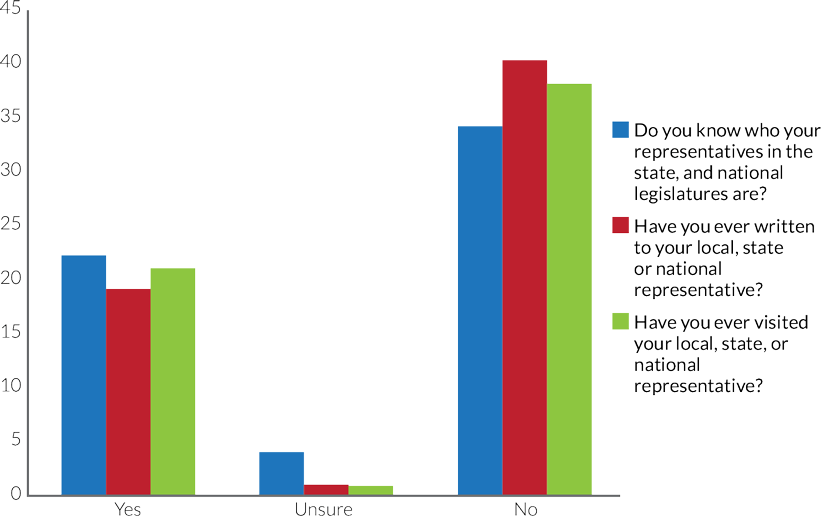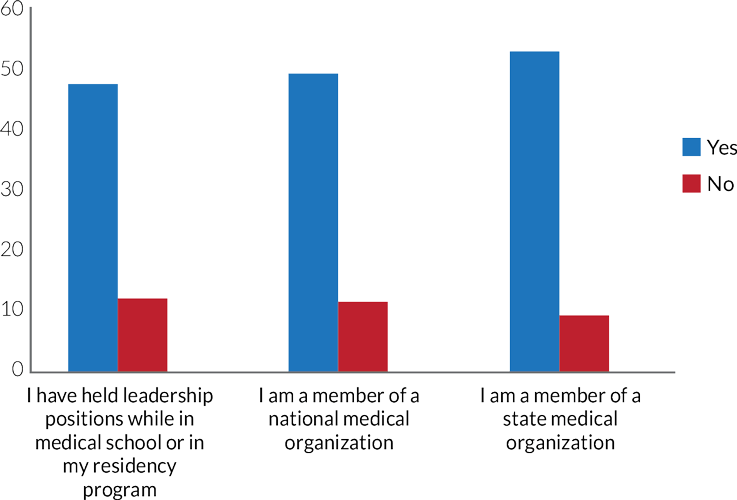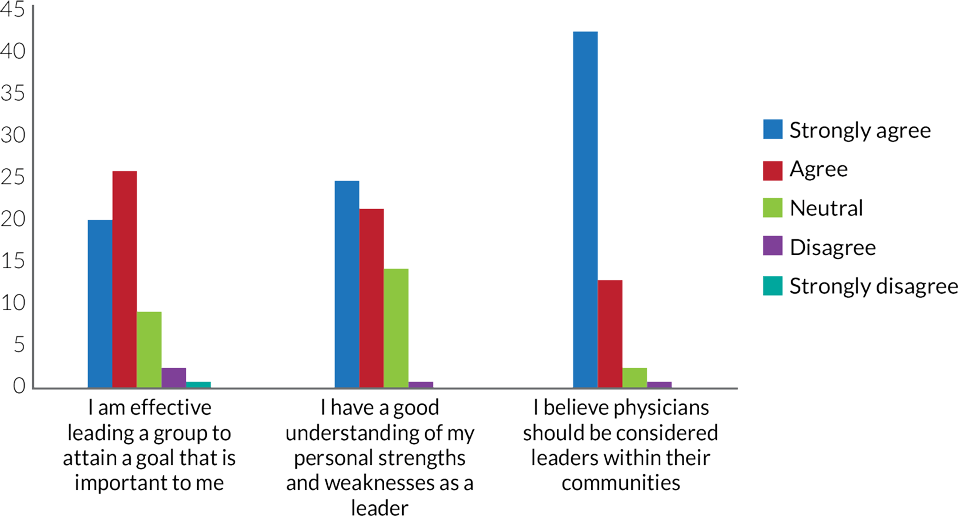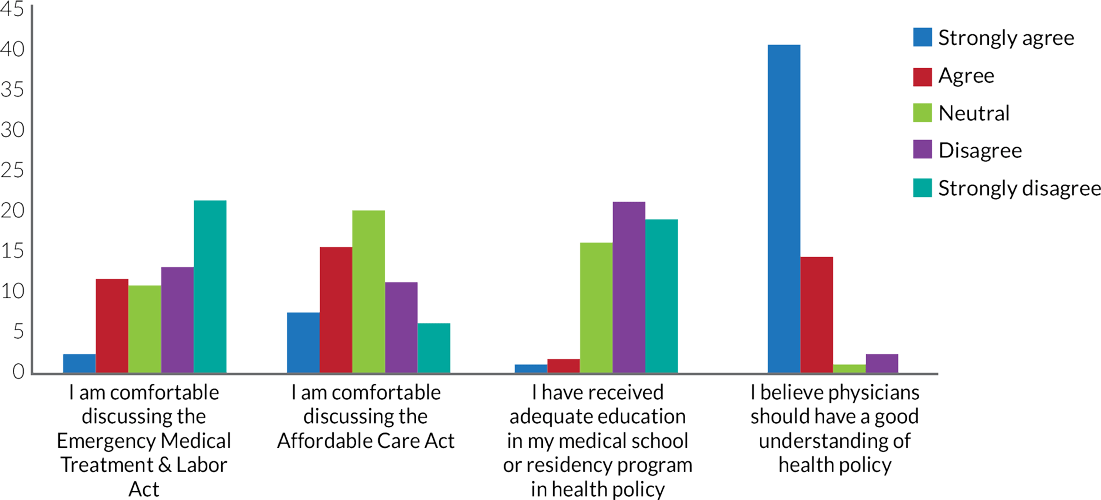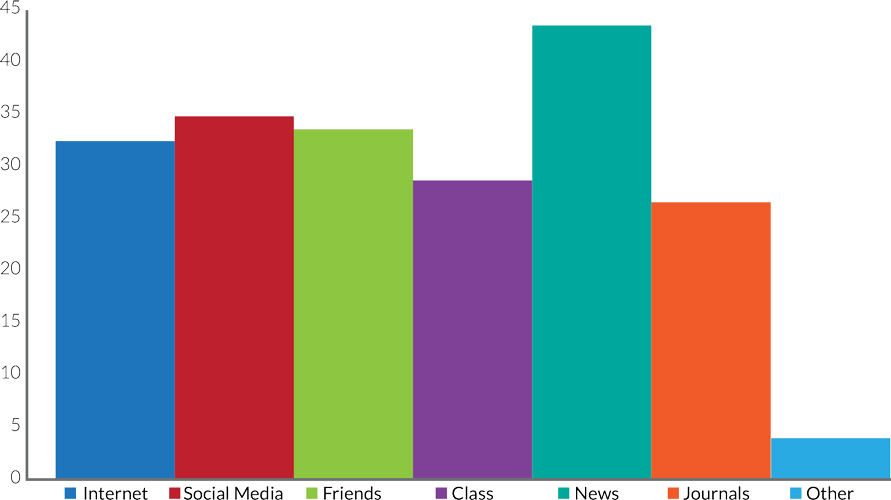Previous data has shown that nearly half of graduating medical students felt that their medical school provided inadequate instruction in health policy related topics.1 In fact, when asked about specific topics, only 59.6% of students reported that they received “adequate” training in health policy. When asked about other similar topics, “adequate” training was reported by 75.9% for public health, 64.35% for health care systems, 48.9% for law and medicine, and 35.5% for medical licensure and regulation.2 When deans of medical schools were surveyed, only 24% reported that they required students to take courses in health policy, yet 58% believe that their school offered “too little” health policy education. Medical school deans listed quality improvement as the most important topic to be covered in the medical school curriculum, followed by health costs, Medicare and Medicaid, health care reform, physician reimbursement, and insurance design.3 Potential reasons policy education may be considered inadequate include the lack of time within the medical school curriculum; a lack of knowledgeable faculty members to teach these courses; and untested methods with which to teach these topics.4
Only 59.6% of students reported that they received “adequate” training in health policy.
As part of the Texas coalition attending the ACEP Leadership and Advocacy Conference last May, we became curious as to what medical student perceptions on topics related to leadership and health advocacy might be. We conducted a statewide survey of students involved in emergency medicine interest groups, which provided results that perhaps may be generalized to medical school education as a whole. Fifty percent of our respondents were female, and as would be expected, 82% listed Texas as their home state.
Figure 1. Student Political Involvement
Figure 2. Student Leadership and Organized Medicine Involvement
The first set of questions surveyed students' level of involvement in, and knowledge of, local, state, and national representation. Of those surveyed, 56.7% stated they did not know who their representatives in the state and national legislatures are; only 31.6% had ever written to a local, state, or national representative; and only 35% had ever visited a representative (Figure 1). However, a majority of students were involved with state and national medical organizations and held leadership positions within their medical schools (Figure 2).
Figure 3. Medical Student Perceptions on Leadership
When asked about leadership qualities, 76.6% agreed, or strongly agreed, that they were effective leaders; 75% felt they had a good understanding of personal strengths and weaknesses as leaders; and 90% felt physicians should be considered leaders within their communities (Figure 3). The data suggest that medical students view physicians as leaders and value leadership as an important personal value and a professional goal.
Figure 4. Student Familiarity and Perceptions on Health Policy Education
Figure 5. How Do You Learn about Health Policy Issues?
When asked about specific health policy topics, 48.2% agreed, or strongly agreed, with the statement, “I am comfortable discussing the Affordable Care Act,” and 34.9% felt the same about EMTALA. This reveals that perhaps we could do a better job educating students on nationally relevant health care topics. Additionally, only 4.9% agreed or strongly agreed that they had received adequate education during medical school in health policy, though 91.6% strongly believed physicians should have a good understanding of health policy (Figure 4). These last two questions very closely mimiced previously attained national data on the topic.2
Finally, when asked where students were receiving information about health policy related issues, 73.3% cited news sources, 58.3% social media, 56.7% friends, 55% internet blogs, 48.3% medical school, and 45% medical journals.
Potential reasons policy education may be considered inadequate include the lack of time within the medical school curriculum, a lack of knowledgeable faculty members to teach these courses, and untested methods with which to teach these topics.
Medical students clearly feel that improving their literacy in topics related to health policy is vitally important, yet believe that it is currently lacking in their medical schools. As such, students are reaching out to other sources, such as the news and social media, to supplement their knowledge base. Use of these alternate resources creates the potential for bias in education based on the political ideology of the source. Alternate sources may not offer a physician's perspective to students, and so the way the issues affect the medical field might be lost. When not explained from within the context of medical education, we risk losing the physician's perspective among our future physicians.
As previously stated, one of the cited barriers to including health policy education in the medical school curriculum is the lack of time and knowledgeable faculty to lead classes. Alternatively, if it is determined that the knowledge students gain from alternate resources is sufficient, medical schools could potentially refer students to these resources to supplement their policy education. In either scenario, a stronger commitment to health policy education and leadership development is needed if we are to become the community leaders that most of us think we should be.
REFERENCES
- Patel M, Lypson ML, Miller DD, Davis MM: A Framework for Evaluating Student Perceptions of Health Policy Training in Medical School. Acad Med Epub: 1, 2014.
- Patel M, Lypson ML, Miller DD, Davis MM: A Framework for Evaluating Student Perceptions of Health Policy Training in Medical School. Acad Med Epub: 4, 2014.
- Mou D, Sarma A, Sethi R, Merryman R: The State of Health Policy Education in U.S. Medical Schools. NEHM 364: e19, 2011.
- Patel M, Davis MM, Lypson ML: Advancing Medical Education by Teaching Health Policy. NEJM 364:695, 2011.




